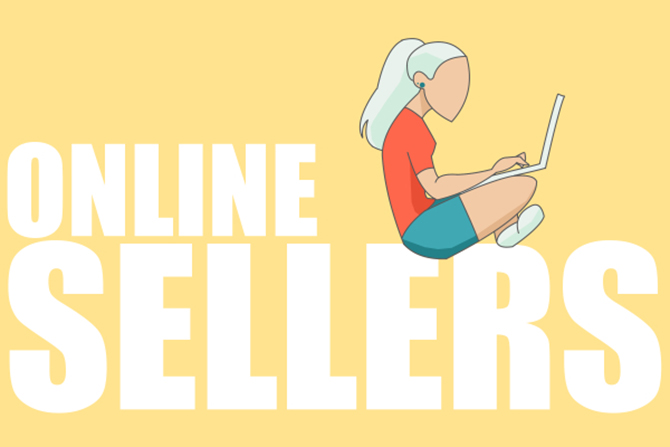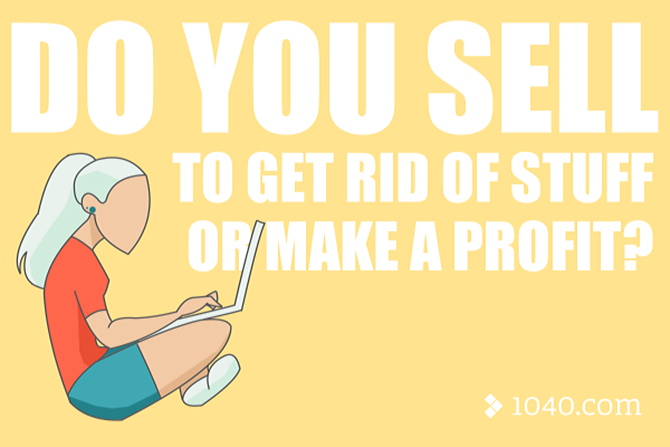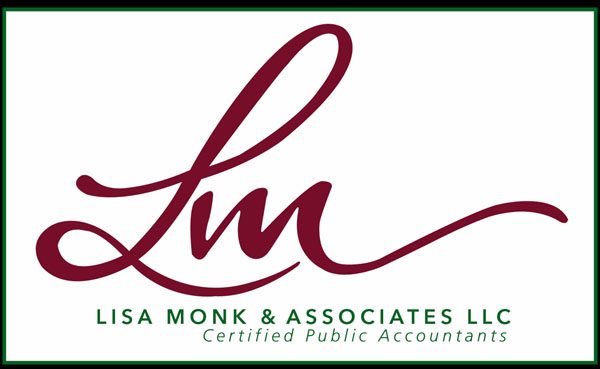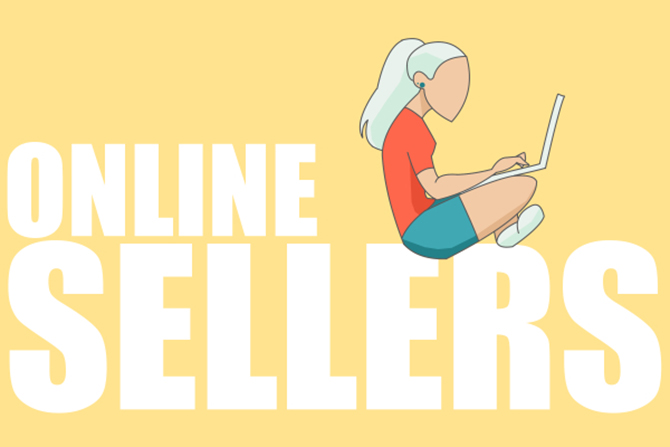tax tips | July 12, 2019 | By Susannah McQuitty

Paying taxes on the money you make from eBay, Etsy, Poshmark, and others seems like a touchy subject, doesn’t it? Part of you may want to just take your chances and figure it out as you go along, but why stress over what you don’t know?
Taxes for online sales isn’t actually that hard—and some people may not even have to pay taxes at all. It comes down to what you’re selling, how much you’re making, and why.
But why not make it even simpler? Let’s look at the three main reasons people sell online and talk straight about what you need to know for taxes.
Selling used and personal items for a couple bucks
Maybe you need to get rid of junk, or maybe you’re doing a true-blue Dave Ramsey cleanse—whatever your motivation, sorting through personal belongings and slating some for your online store can bring in a pretty penny for your efforts.
When you sell personal used belongings for an amount that’s less than you originally paid, you’re in luck: You won’t owe taxes on the money you make. If you use Poshmark to sell a pair of $50 running shoes for $15, you don’t have to pay taxes because the amount you received was less than the original price.
Sure, you won’t be raking in the dough because you’re not selling at a profit, but that amount somewhere between couch money and birthday cash is yours to keep.
Taxes to know:
- As long as you sell your items for less than they cost you, you don’t have to pay taxes on the money you make.
Making back more than you paid (once in a while)
Let’s say you’re getting rid of a painting that cost you $30. An artsy-looking chap strolls by, catches sight of it, and flings his beret into the air for joy. He offers to pay you $200 for the painting, and you take the money. Cha-ching!
You didn’t plan to sell the painting for more than it cost you, so you’re not considered a business. You did, however, have a gain of $170 since you originally paid $30. That $170 is taxable as a capital gain, so when tax time rolls around, you should use Schedule D to report your capital gains and pay taxes accordingly.
Selling for higher than you paid might come up fairly often on eBay, since it’s bidding-based. If you set up an account with the intention of flipping items and selling them for higher than you paid, skip this and go to the next section; if, however, it’s just a happy accident when you get more than you paid, simply report the difference on a Schedule D as capital gains.
Taxes to know:
- Whatever extra income you made will be taxed as a capital gain.
- You can use Schedule D to report capital gains.

Flipping or creating items as a business
Whether you’re making those thrift store finds work in your favor, creating unique pieces to sell on Etsy, or restoring memorabilia to sell on eBay, running a storefront to turn a profit means you’re in the big league now.
Even if it’s just something to do on the side of your day job, congratulations: You are what’s called a “sole proprietor,” which is a fancy way of saying “a person who owns and runs a small business.”
Since your position is a bit fancier, your taxes will be a bit more involved. The key is to keep detailed track of how much you earn (income) and how much it costs to run your business (expenses). At the end of the year, you’ll use Schedule C to report your info and subtract expenses from income. You’ll either break even, make a profit (or net earnings) or suffer a loss (which can get you a tax break on your general income).
The platforms you use to sell will typically track your earnings and the cost of goods sold, but if they don’t, make sure you’re ready to fill in the blanks. Check out our blog post on getting started as a small business or freelancer for more info.
Taxes to know:
- Schedule C is going to be your best friend when you file your taxes—consider it a one-stop shop for everything related to your business.
- After listing your income and expenses on Schedule C, calculate any profit by subtracting your business expenses from your income. If you come up with a negative number, you have a loss.
- If your profit exceeds $400, self-employment taxes will be applied.
- If you have a loss, you can deduct that amount from your taxable income without having to itemize deductions.
So what about sales tax?
Okay, but hold up—you’re selling stuff, so do you have to pay sales tax?
Usually the selling platform you use will collect sales tax and show you a report at the end of the year. The sales tax goes to the state that you run your business from; since you’re operating on the internet, sales tax will go to the state where you live.
Now, sometimes the platform doesn’t handle sales taxes, and in that case, you’re responsible for collecting the tax from your customer and sending the money where it needs to go. For example, eBay will manage sales tax for 27 states by the end of 2019, but sales tax still has to be reported and delivered if your state is not included in that number.
Boiling it all down
Just remember: Taxes for online sales comes down to what you’re selling, how much you made vs. how much you had to spend, and why you’re in the market to begin with.
Sold goods aren’t taxable as income if you are selling a used personal item for less than the original value. If you flip it or sell it for more than the original cost, you have to pay taxes on the surplus as capital gains. If you bought it with the intention of restoring and turning a profit, you’ll have to file Schedule C and possibly pay self-employment taxes.
That just about wraps it up! Hit up the comments with any questions about taxes for your online storefronts, and check out our tax estimator to get a hands-on example of how they will affect your taxes.



